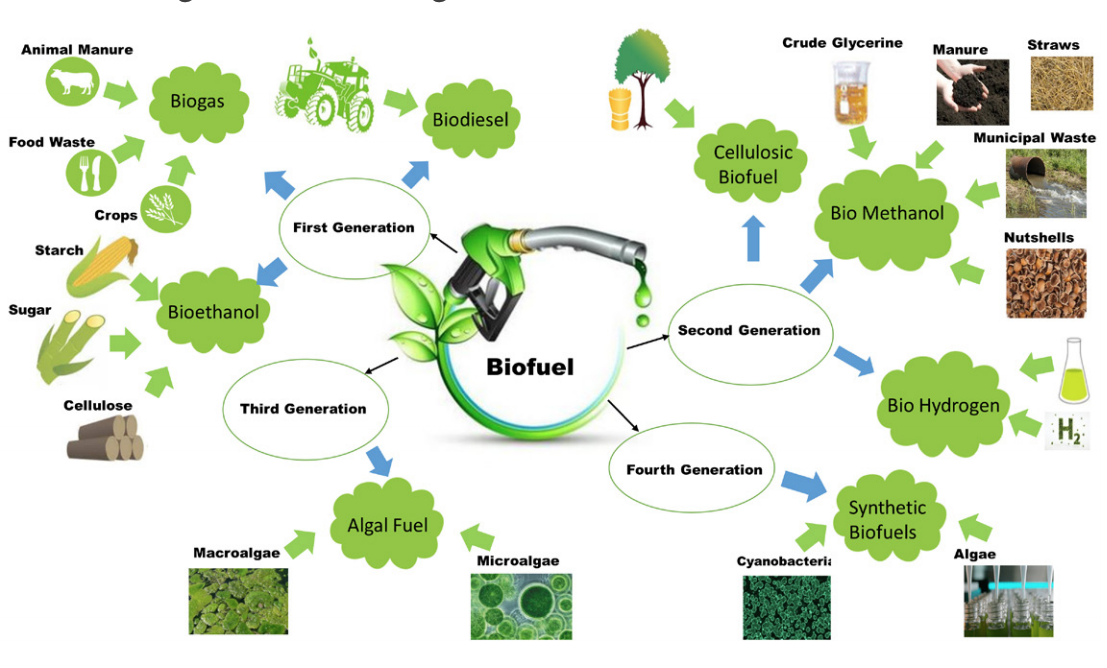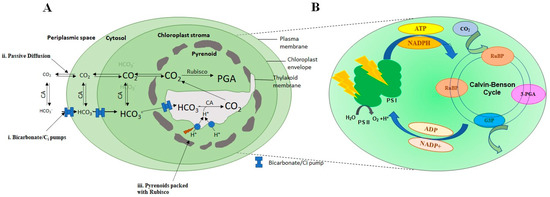Table of Contents
![]()
Introduction
In the quest for a greener and more sustainable energy future, researchers and scientists are exploring alternative sources of biofuels. Among these alternatives, algae have emerged as a promising candidate for sustainable biofuel production. In this article, we will delve into the world of algae and discover its incredible potential in the realm of sustainable biofuel production.
Algae as a Biofuel Source
When we think of biofuels, we often think of crops like corn and sugarcane. However, algae, both micro and macroalgae (commonly known as seaweed), have gained recognition as potent biofuel sources. Microalgae, in particular, stand out for their high oil content, rapid growth rates, carbon neutrality, and minimal land and freshwater requirements.
Algae Cultivation
The cultivation of algae can take various forms, with open pond systems and photobioreactors being two primary methods. Open pond systems are large, open-air pools where algae grow under sunlight, while photobioreactors are closed systems that provide controlled conditions for algae growth. Interestingly, algae cultivation can also serve as a wastewater treatment solution, providing an additional environmental benefit.
Algae-to-Biofuel Conversion
To harness the energy potential of algae, we must convert them into usable biofuels. The process involves extracting lipids (oils) from algae and then converting these lipids into biofuels. Algal biodiesel production is a well-known method, but hydrothermal liquefaction and algal bioethanol production are also gaining traction as viable conversion processes.
Environmental Benefits
One of the most compelling reasons to explore algae as a biofuel source is its environmental benefits. Algae-based biofuels have the potential to reduce greenhouse gas emissions and play a role in carbon capture. Moreover, the cultivation of algae can be integrated into wastewater treatment systems, effectively treating wastewater while producing biofuels.
Challenges and Limitations
While algae biofuels hold immense promise, they are not without challenges and limitations. Economic feasibility remains a hurdle, as does the need for further technological advancements. Additionally, algae biofuel production must contend with competition for resources with food production.
Current Research and Developments
The world of algae biofuels is continuously evolving. Researchers and industry leaders are making significant strides in improving the efficiency and scalability of algae biofuel production. Investment and government support are fueling this progress, and collaborative efforts are accelerating innovation.
Case Studies
To gain a deeper understanding of algae’s potential, it’s essential to look at successful projects and learn from failures. Several algae biofuel projects worldwide have demonstrated feasibility and yielded valuable insights into the industry’s future.
Future Prospects
The future of algae biofuels is promising. Scaling up production, integrating algae biofuels into existing energy systems, and exploring their role in a sustainable energy future are all exciting prospects. As the world strives for renewable energy solutions, algae could be a key player in reducing our reliance on fossil fuels.
Conclusion
In conclusion, algae’s potential in sustainable biofuel production cannot be overstated. With their rapid growth, high oil content, and environmental benefits, algae are emerging as a frontrunner in the race for cleaner and more sustainable energy sources. While challenges remain, ongoing research, investment, and innovation suggest a bright future for algae biofuels. As we work towards a greener planet, algae may hold the key to a more sustainable energy future.



